CISAC Names 2024-2025 Fellows
CISAC Names 2024-2025 Fellows
The Center for International Security and Cooperation (CISAC) is pleased to welcome the fellows who will be joining us for the 2024-25 academic year. These scholars will spend the academic year generating new knowledge across a range of topics that can help all of us build a safer world.
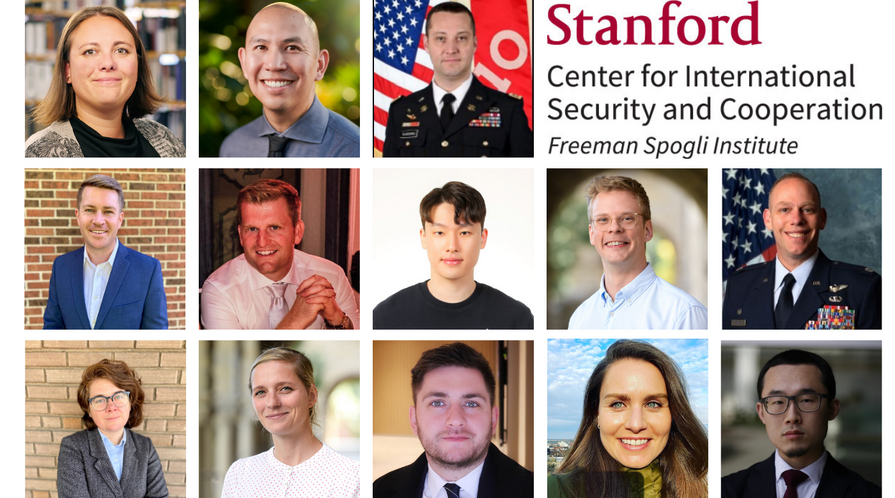
CISAC Fellows spend the academic year engaged in research and writing, participating in seminars and interacting and collaborating with leading faculty and researchers. The CISAC fellowship provides an unparalleled opportunity for scholars and professionals to explore complex international problems and innovative solutions in a collegial and collaborative environment.
MEET THE FELLOWS
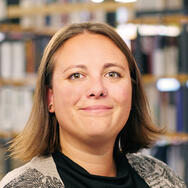
Anna-Katharina Ferl
Before joining CISAC, Anna worked as a researcher at the Peace Research Institute Frankfurt (PRIF) and completed her PhD in Political Science at Goethe University Frankfurt. During her doctoral studies, she was a research fellow at the German Federal Foreign Office, Cornell University, and the University of Southern Denmark. Anna has also conducted field research at the United Nations in Geneva.
Anna’s research focuses on the intersection between politics, international security, and technology, with a specific focus on military applications of AI and autonomy. She is interested in how these technological developments shape human-machine relations and how they change understandings of the human role in future warfare. This also influences how AI technologies could be politically regulated and governed.

LTC Christopher Gin
LinkedInChris completed his undergrad studies at the US Military Academy at West Point in 2005 and immediately began a Graduate Degree Fellowship at the East West Center in Honolulu, HI. Since then, he's completed several Professional Military Education courses as part of his career as an Active Duty Army Officer, most notably the Command and General Staff College and the Joint Forces Staff College. As an instructor, Chris served as the Professor of Military Science at the Sol Price School for Public Policy at USC from 2021-2022.
Chris' research focus is on US-Sino relations in the 21st-Century, China's military modernization after 1979, and Cross-Strait relations in an era of Great Power Competition. He is also interested in the evolution of foreign language acquisition, training, maintenance, and retention of military linguists since 2001.
His hobbies include, watching nightly Jeopardy with his family, podcasts, basketball, occasional Golf

LTC Ryan S. Gladding
Ryan graduated from the University of Nevada Las Vegas in 2003 with a BA in Psychology. In the military, he pursued multiple courses in social psychology, marketing, security, and behavior modification over the last 20 years. He also holds a MS in Defense Analysis from the Naval Postgraduate School in Monterey.
The US Army is currently facing a generational challenge in the area of recruiting. Ryan wishes to examine and define the US Army's current challenges in recruiting and determine better strategies to obtain qualified candidates that will fight and win our nations wars.
Ryan is interested in additive technologies and virtual reality. He also enjoys the ocean and is thrilled to be back on the West Coast for the first time in almost a decade.

Maj. Edward Hendricks ll
LinkedInEdward brings over a decade of flight instruction and leadership development in the United States Air Force. His education includes a Bachelors of Science in Finance and a Masters in Military Operational Art and Science Leadership Studies. Edward has most recently graduated from the Department of Defense Executive Leadership Development Program, a 10 month comprehensive experiential learning program focused on global defense leadership development.
His research focus on international security and defense innovation will target disruptive technology and expediting market ideas through the defense acquisition and implementation process.
As a father of young children Edward spends most of his free time exploring new parks and adventuring around with his girls. He also enjoys training for marathons and fundraising for breast cancer research.
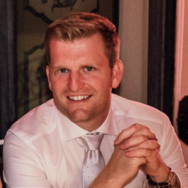
Patrick Hulme
WebsiteBefore coming to CISAC, Patrick was a Research Fellow with the International Security Program at the Harvard Kennedy School's Belfer Center for Science and International Affairs. He completed his Ph.D. in political science at the University of California San Diego in May 2023, and his J.D. at the UCLA School of Law in 2017. For the summer of 2022, Patrick was a Summer Associate with the RAND Center for Analysis of U.S. Grand Strategy, and for the 2020-2021 academic year he was a Hans J. Morgenthau Fellow at the Notre Dame International Security Center.
Patrick’s research and teaching interests include congressional-executive relations in U.S. foreign policy, constitutional law, deterrence theory, and the U.S.-China relationship. He is especially interested in the influence of Congress in use of military force decisions, as well as the role of legal constraints in international security.

Changwook Ju
WebsiteChangwook earned his Ph.D. in Political Science from Yale University in 2024. He also holds an M.A. and an M.Phil. in Political Science from Yale, obtained en route to his Ph.D. Before Yale, he received an M.P.P. from the University of Chicago Harris School of Public Policy in 2018. In 2015, he graduated from Sungkyunkwan University in Seoul, South Korea, with dual undergraduate degrees in public policy and political science. From 2011 to 2013, Changwook served in the Republic of Korea Marine Corps, attaining the rank of sergeant.
Changwook’s research spans international relations and security studies. He is primarily interested in military recruitment, battlefield effectiveness, civil–military relations, democracy and war, public nuclear attitudes, China and international politics, East Asian security, political violence, and conflict-related sexual violence.
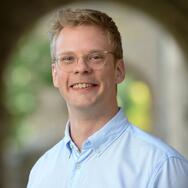
Max Lamparth
WebsiteMax is a returning postdoctoral fellow at the Center for International Security and Cooperation, the Stanford Center for AI Safety, and the Stanford Existential Risks Initiative. With his technical research, Max wants to make AI systems more secure and safe to use. Specifically, he is focussing on how to improve the ethical behavior of language models, how to make their inner workings more interpretable, and how to increase their robustness against misuses.
Max also created and teaches a new course at Stanford: “CS120: Introduction to AI Safety”. His research and teaching is advised by Prof. Clark Barrett, Prof. Steve Luby, and Prof. Paul Edwards. Previously, Max received his Ph.D. in August 2023 from the Technical University of Munich and previously a B.Sc. and M.Sc. from the Ruprecht Karl University of Heidelberg.
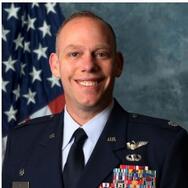
LTC Michael Matt
Lieutenant Colonel Michael A. Matt is the Deputy Group Commander of the 3rd Air Support Operations Group and Air Liaison Officer to the 3rd Armored Corps at Fort Cavazos, Texas. He executes operations to educate, train and equip Tactical Air Control Party Airmen, advises the Corps Commander and his staff on airpower employment, providing combat ready Airmen to combatant commanders for worldwide contingency operations.
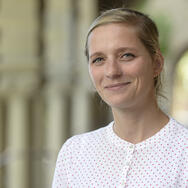
Johanna Rodehau-Noack
WebsiteJohanna’s research focuses on an idea underlying much of modern governance: that we can harness science and technology to address social and political issues, including hard and protracted problems such as war. My current work investigates the role of AI and machine learning in conflict prevention as an example of the hope that science and algorithms might help us to prevent wars better, faster, and at a cheaper price point. To do so, I draw on IR theory, insights from the History of Science, as well as Science and Technology Studies (STS).
Before coming to CISAC, Johanna was a Global Innovation Program Postdoctoral Fellow at the University of Pennsylvania’s Perry World House. She received her PhD in International Relations from the London School of Economics in June 2022. During her doctoral studies, she was an editor of Millennium: Journal of International Studies. She also holds an MA in Political Science and a BA in International Development from the University of Vienna, Austria
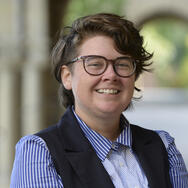
Lindsay Rand
WebsiteLindsay Rand is a postdoctoral fellow at the Stanford Center for International Security and Cooperation (CISAC), a non-resident scholar at the Carnegie Endowment for International Peace Nuclear Policy Program, and an associate fellow at the Center for International and Security Studies at Maryland (CISSM). She completed her PhD in international security and economic policy at the UMD School of Public Policy in 2023. Her dissertation, titled “Schrodinger’s Technology is Here and Not: A Socio-Technical Evaluation of Quantum Sensing Implications for Nuclear Deterrence,” examined the social, technical, and strategic factors that shape perceptions of new technologies and their consequences for deterrence and strategic stability.
Her current research extends her dissertation work in two key areas. First, she is continuing to monitor the evolution of quantum technology R&D and is using this background to produce a primer for policymakers on the implications of quantum technology for international security. Second, she is applying her socio-technical framework to explore how social, political, and technological dynamics have contributed to the cyclical reconception of “vulnerability” in nuclear strategy and policymaking.

Bogdan Țopan
LinkedInBogdan is currently pursuing a double diploma PhD with University Paris 1 Panthéon-Sorbonne and the University of Bucharest. He holds an MA in International Security and a BA in Political Science, both from Sciences Po Paris. As part of his double PhD diploma, Bogdan spent three semesters as a French-language teaching assistant at the University of Bucharest for a BA course in International Relations, Diplomacy, and International Affairs. Apart from his academic pursuits, he is a proud Romanian career diplomat, primarily dealing with strategic affairs and security policies within NATO and the European Union.
Bogdan's research analyses how the North Atlantic Treaty Organization, and subsequently the European Union, have developed policy response mechanisms to hybrid conflicts, transforming this concept into a policy tool that is not fully regulated, while creating a "threshold of conflictuality” that might facilitate the triggering of the collective defense mechanisms available at the level of the two organizations. This research attempts to fill a series of knowledge gaps concerning the policy responses against hybrid attacks through an intersectional study of the policy responses at the level of NATO and the European Union. The preliminary results of this study demonstrated that the using of the term led to an evolution of the strategic thinking at the level of the two organization, while equally producing structural transformation and being conducive to the development of subsequent decision-making processes.

Váleri Vásquez
WebsiteDr. Vásquez's research informs the development of health management actions for vector-borne disease that are robust to climate change uncertainty.
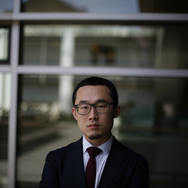
X Zhang
WebsiteX is a PhD candidate in the Department of Political Science at the University of Wisconsin–Madison. Prior to this, he received an MA from the University of Chicago's Committee on International Relations and a BIR from the Australian National University.
X's research focuses on the dynamics of revenge in international conflict. While conventional wisdom and strategic discourse often advocate for retaliation as a means of deterrence, he proposes that the real impetus frequently stems from an intrinsic desire for revenge. He argue that the primary trigger for revenge in international relations is the magnitude of suffering experienced by one’s national ingroup. Consequently, retaliatory actions are less about strategic deterrence and more about inflicting equivalent pain on the adversary, potentially setting off a cycle of revenge. Thus, in security crises and peace settlements, the key to escalation management and rivalry termination lies in reducing adversary suffering and the adversary public's desire for revenge.
As a hobby, X is writing a novel about disinformation and gaslighting in politics.
